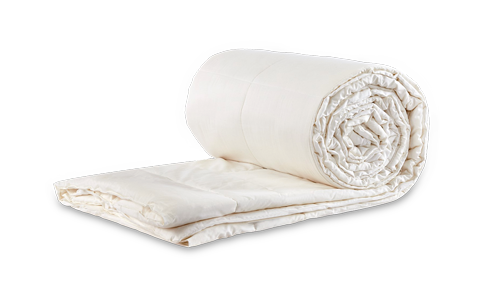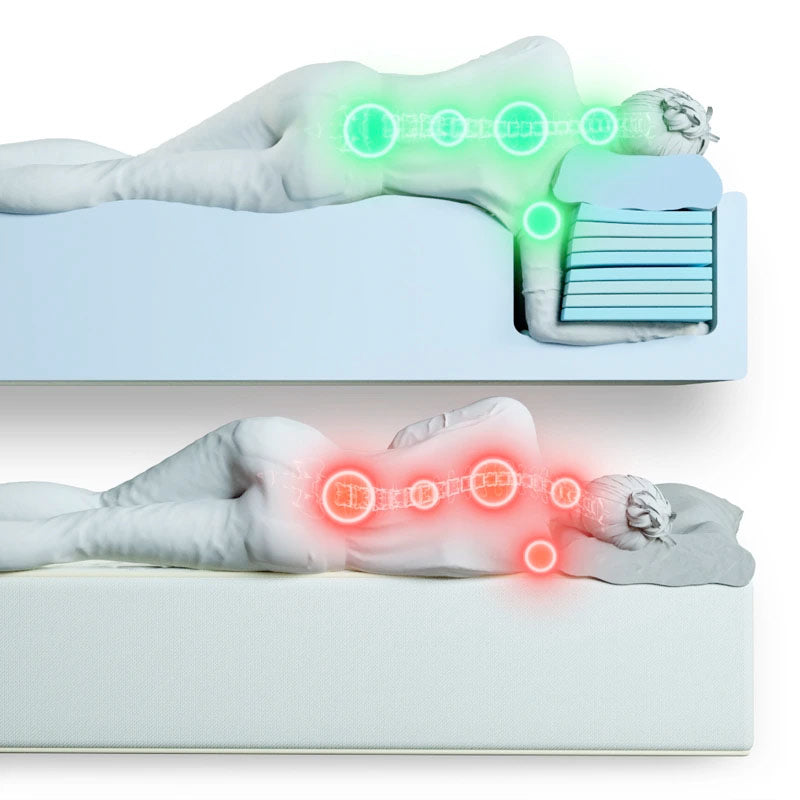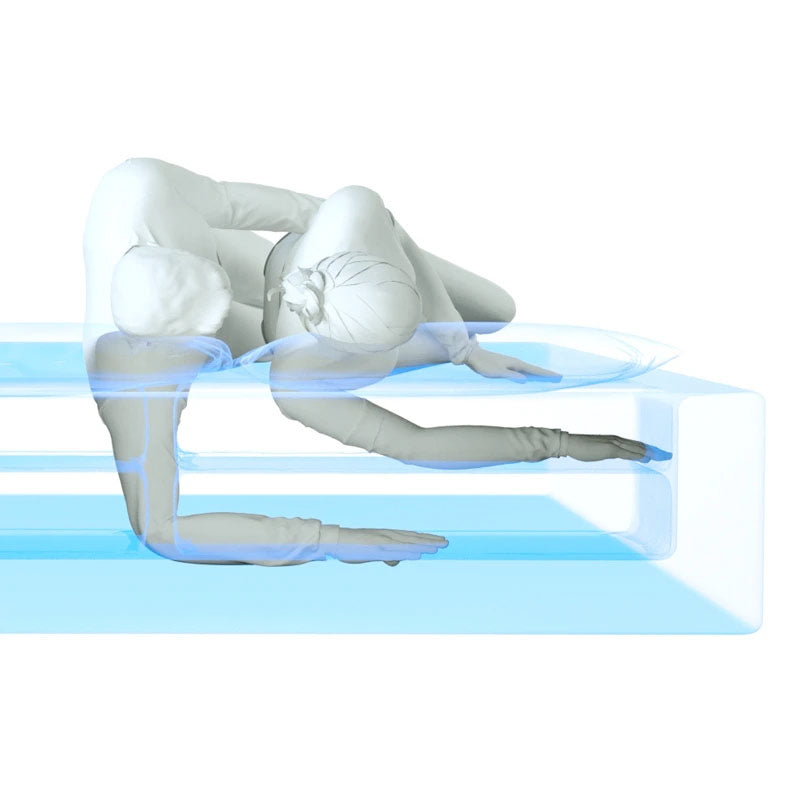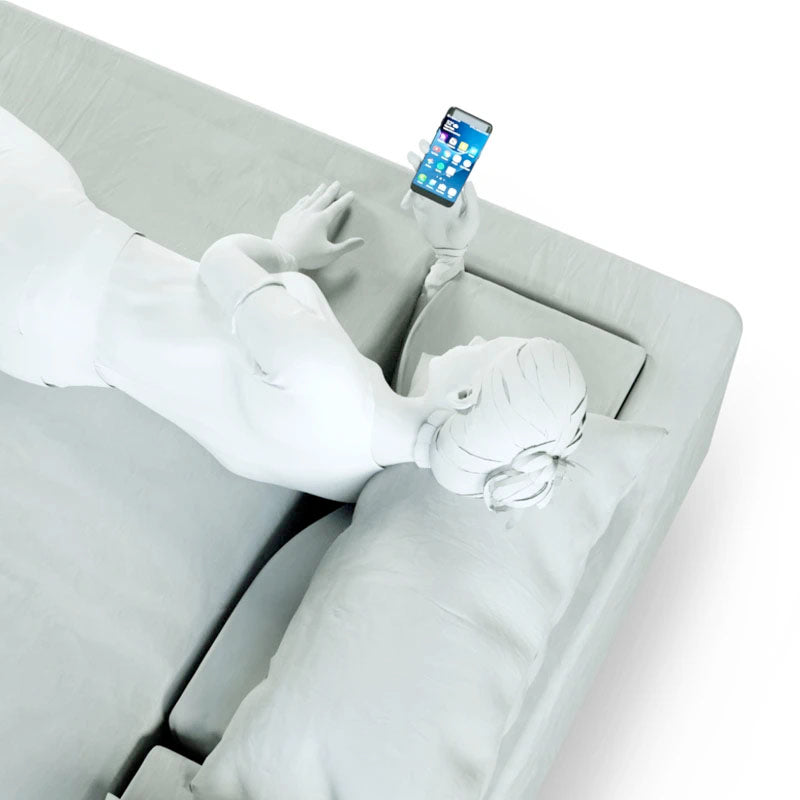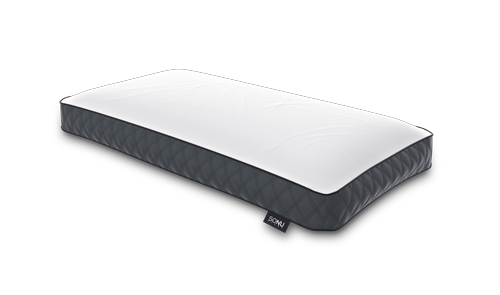Do you have a hard time waking up in the morning? Are you having a long day and keep finding yourself yawning or nodding off? You might be suffering from excessive sleepiness.
Don’t worry — we’re going to teach you some ways to wake up and stay awake as the day goes on.
What Is Excessive Sleepiness?
What is excessive sleepiness? It’s the inability to stay alert or awake due to low energy levels. Many people suffer from it during the day, and they yearn to go back to bed, but they can’t.
Between 10% and 20% of Americans experience excessive sleepiness that makes them want to hit the snooze button. It’s more common in sedentary people or those suffering from mental health problems, like depression. It’s typically caused by sleep disorders like insomnia or poor sleep quality that can make it tough to be a morning person.
You can improve your sleep quality by investing in a new mattress, like the SONU Sleep System. SONU’s mattresses provide luxurious comfort while relieving pain caused by sleeping on inefficient mattresses.
Symptoms of excessive sleepiness include:
- Irritability
- Daytime sleepiness or grogginess
- Memory problems
- Reduced alertness
- Inability to focus
- Slow reactions
- Impulsiveness
- Inability to retain new information
- Ill-equipped to make decisions
Excessive sleepiness can be dangerous. It can lead to automobile accidents, workplace injuries, disabilities, and reduced productivity. People who suffer from excessive sleepiness sometimes experience a lower quality of life and mental health problems. It can also affect your relationships and your social life.
How Much Sleep Do You Need?
We have all heard that we should get eight hours of sleep per night. However, the answer varies by age group. For example, it’s recommended that teenagers get between eight and 10 hours of sleep per night. It’s recommended for adults aged 18 to 60 to get around seven hours of sleep each night.
If you experience sleep problems that contribute to sleep deprivation, it may be beneficial to visit a sleep specialist who can help you form healthier sleep habits.
7 Ways To Wake Yourself Up
If you suffer from a sleep disorder like excessive sleepiness or just find it hard to get up in the morning and move on with the rest of the day, here are some tips for waking up that have stood the test of time.
1. Move Around
Getting exercise at some point during the day will wake you up, especially if it is part of your morning routine. Some people prefer to get it out of the way first thing in the morning, while others might work out midday or in the late afternoon.
If a full-on workout is not your style, getting up and doing any movement will help wake you up. This could include taking a quick walk around your house, stretching, or doing breathing exercises. All will warm you up and help you feel alert.
2. Drink Caffeine
We couldn’t make a list of things that wake you up without including caffeine. Caffeine stays in your system for several hours, which is why most people tend to drink a cup of coffee or tea when they get up in the morning.
As the day goes on, you may feel like you need a little “pick me up” in the form of another cup of coffee, tea, or other caffeinated beverage. Be mindful that consuming caffeine late in the afternoon can make it more difficult for you to fall asleep that night. Is that extra cup of coffee worth it?
3. Drink Cold Water
Unlike caffeine, you can drink water at any time of day. Drinking it first thing in the morning can make you feel refreshed and alert. As the day goes on, it’s fine to drink water regularly to wake yourself up.
In addition to curing your tiredness, water is beneficial to your health and can even slow down aging. The only con to drinking water all day is that you will need to go to the restroom to relieve your bladder frequently.
4. Turn On Some Music
There’s no better way to wake up than feeling the beat of your favorite music! Start your day with some upbeat tunes that put you in a good mood.
Don’t just play music in the morning. Jamming out to your favorite songs can help keep you awake and spark productivity.
5. Get Some Natural Light
Exposing yourself to natural light is a good way to boost your mood and wake you up. Since our sleep-wake cycle is affected by light, it’s good to expose yourself to it at various intervals to encourage wakefulness. Taking a walk out in the sunshine and fresh air or opening your curtains and letting light shine in is extremely helpful — plus it may help you enjoy better quality sleep later on.
6. Eat a Snack
Eating a healthy snack can give you an energy boost. Avoid sugary things like cookies and candy and go straight for fruit, vegetables, cheese, or nuts. Opt for protein-rich snacks and try not to consume too much salt. You’d be surprised at how much more alert you feel when you nourish your body.
7. Take a Nap
When all else fails, take a nap, but keep it short. Your body just needs about 20 to 25 minutes to rejuvenate. Don’t nap too close to bedtime because it can make sleeping that night much more difficult.
If you cannot nap, closing your eyes for a few minutes and meditating can help. Our eyes grow tired during the day, and we sometimes lose focus. Just closing them for a few minutes can help.
Getting a Good Night’s Sleep
These techniques can only do so much if you don’t improve your sleep quality first. If you have been losing sleep and suspect that you have a sleep disorder, it’s time to talk to your doctor.
A doctor may recommend training yourself to wake up naturally by getting better sleep. Here are some ways to establish good sleep hygiene to help you sleep better each night.
Go to Bed At the Same Time
One of the first changes you can make is your bedtime. An inconsistent bedtime can disrupt your circadian rhythm or internal clock, making it harder to wake up in the morning or throughout the day. Your body needs you to be on a regular sleeping schedule.
Keep Work Out of the Bedroom
Your bedroom is where you get some shut-eye each night. It shouldn’t be the same location where you do your work. Disrupting your sleep environment makes your body associate your bedroom with productivity, not sleep.
If you work from home, create a workspace outside your bedroom. Not everyone has an extra room to use as an office, so using part of your living room or kitchen would be ideal.
Make Sure Your Bed is Comfortable
It’s hard to get enough sleep if lying on your bed feels like torture. Your bed should never cause you pain. Unfortunately, a lot of traditional mattresses do. That’s why you need to purchase a mattress that is in tune with your body. Once you do that, you will find it easier to rest well.
You can find great mattresses made out of latex, gel, memory foam, or other types of highly resilient materials. Take your time and do your research to figure out which material works best for your body. You can even find beds that cater to your specific sleeping position.
Conclusion
Excessive sleepiness is common in up to 20% of Americans. Are you one of them?
If you are someone who feels tired and groggy all day, or you simply can’t make yourself get up in the morning, you might be experiencing excessive sleepiness. You should talk to your doctor to determine if you have a sleep disorder and to rule out anything more serious.
If nothing serious is at play, try these seven techniques to help wake you up. In no time, you will find that you feel better and that you are awake enough to handle your responsibilities. Most importantly, you’ll have taken steps to prevent yourself from ending up in a dangerous situation, like a car accident.
Better yet, clean up your sleep hygiene and establish a regular bedtime to be attentive and full of energy. Make sure your mattress is part of your sleep hygiene routine — buy a mattress specific to your needs.
One of the best mattresses out there is SONU Sleep’s negative space mattress. This unique mattress molds to your distinctive body shape, relieving pressure from parts of the body most susceptible to pain when sleeping.
If you’re ready for something new, explore the SONU Sleep System here and see if the negative space mattress is right for you. You won’t regret it.
Sources:
How to Wake Up Without an Alarm Clock | Sleep.org
How to Stay Awake Naturally | Sleep Center | Salem Health
Are You Getting Enough Sleep? | CDC
Excessive Sleepiness: Causes, Symptoms, and Treatments | Sleep Foundation













